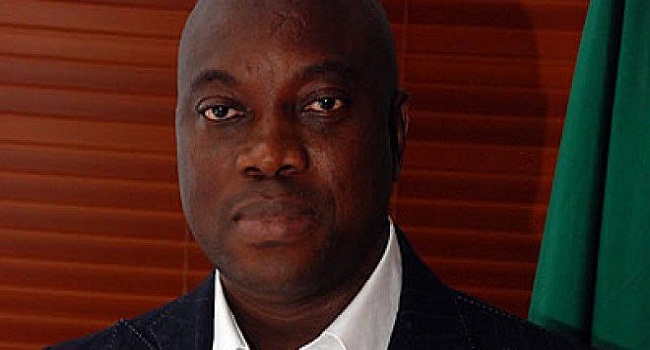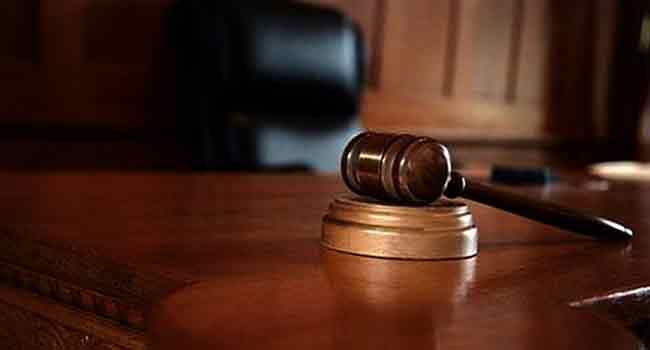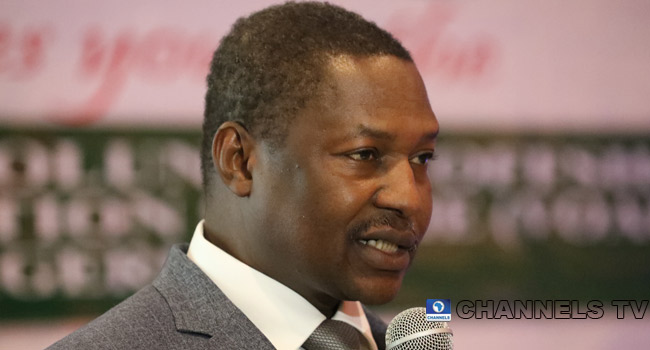
He was a Special Adviser to former President Goodluck Jonathan on Niger Delta Affairs.
Justice Okon Abang had on February 17, in a ruling on a fundamental right suit, instituted by Mr Kuku against the EFCC and others, held that the respondents could arrest, probe and prosecute Mr Kuku over alleged financial impropriety during his tenure.
Dissatisfied with the court’s ruling, Mr Kuku appealed against the verdict and filed a motion for a stay of execution, dated February 23, and supported with an 11 paragraph affidavit, deposed to by one Chinedu Obata before the court.
Justice Abang, who is currently sitting in Abuja Division of the Court, was in Lagos on Tuesday with the permission of the Chief Judge, to deliver his ruling on the application.
Nothing To Lose
The court in its ruling held that the application before the court had nothing to do with the statutory right of the respondents.
Justice Abang ordered the parties to maintain status quo pending the determination of an appeal filed by Mr Kuku on the matter.
“Time cannot run against the State in arresting or prosecuting the applicant if truly, he is culpable of the alleged offence.
“The respondents have nothing to lose if status quo is maintained. So, all action concerning arrest, detention and prosecution of the applicant should hold on for now, till final determination of the appeal on the matter,” the court ruled.
Justice Abang in the earlier judgment, which declared that the anti-graft agency had a right to arrest Mr Kuku, warned the commission not to coerce or threaten anybody to give false statement against the applicant.
Besides, the court also held that if Kuku was arrested, he should not be detained beyond 48 hours because that would contravene Section 35(4) & (5) of the Nigerian Constitution.
Mr Kuku had sued the Attorney-General of the Federation, EFCC, the Independent Corrupt Practices Commission (ICPC), the Inspector-General of Police (IGP), the Department of State Services and the Nigeria Immigration Service, alleging that they had “plots to concoct, fabricate or falsify evidence in order to provide a basis for his arrest, detention, persecution and/or prosecution for political reasons”.
According to him, this was “in furtherance of the unconscionable use of the otherwise laudable war against corruption to repress the political opposition constituted by the leaders of the Peoples Democratic Party (PDP), including the applicant”.
He sought a declaration that any such invitation, arrest, harassment or prosecution on the basis of allegations of corruption in respect to his tenure as Chairman of the Amnesty Programme between 2011 and 2015 was a breach of his right to fair hearing and freedom of movement.
Mr Kuku also sought an order prohibiting the respondents from arresting or prosecuting him on the basis of the allegations.
The Auditor-General of the Federation had raised questions over the alleged mismanagement of funds in reports of audit monitoring and evaluation of the amnesty programme.
Mr Kuku’s lawyer, Mr Ajibola Oluyede, said the respondents were about to abuse the criminal process by seeking to arrest his client.
“There is an illegal and unjustifiable instigation of the criminal process against the applicant in a manner that infringes upon his fundamental rights, as enshrined in Chapter four of the 1999 Constitution,” he said.




